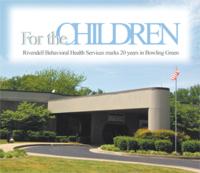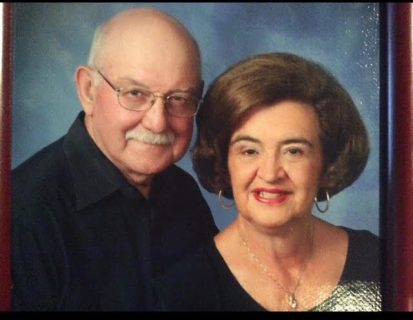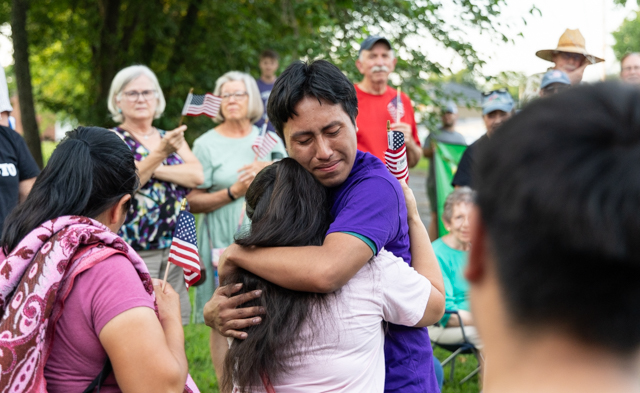For the CHILDREN
Published 12:00 am Monday, May 8, 2006

- For the CHILDREN
Rivendell Behavioral Health Services in Bowling Green opened 20 years ago and was named after a place of rest and refuge in J.R.R. Tolkien’s “The Hobbit.”
With the circle of bricks encompassing the facility’s front door, the sense that you’re entering a Hobbit’s home is intended.
Other Tolkien-esque touches were added throughout the facility.
“Twenty years ago, people thought that was strange,” said Janice Richardson, CEO/administrator of Rivendell, which opened as a place to treat kids with conduct disorders.
Now, many don’t know that Rivendell, which no longer has many of the original Hobbit-themed touches, became a hospital for children and adolescents with psychiatric and substance abuse problems 16 years ago.
“When people walk in, they say, ‘Oh my gosh. This place is beautiful. I didn’t know it was here,’ ” Richardson said.
Employees at Rivendell would like to change that.
“I’d hate to think children need this level of care,” said Susan Cook, community liaison for Rivendell, “but if they do, it’s good to know it’s here.”
Rivendell sits at the end of a long, winding drive at 1035 Porter Pike.
The 72-bed hospital has an intensive outpatient program in addition to acute inpatient services for children and adolescents, a sex offender treatment program for 13- to 17-year-olds, a program to help 8- to 12-year-olds who were sexually abused and a dual diagnosis program in which kids who have psychiatric and substance abuse problems get treatment.
Family therapy is part of every treatment.
“I think (individual) treatment can be beneficial,” said Rivendell Clinical Director Jennifer Miller, “but the (child’s) whole environment has to change” for maximum benefit.
Last year, there was a 98 percent occupancy rate at Rivendell, where most of the children are 8 to 17, though children as young as 4, in rare cases, are admitted.
“We have run full for a long time,” Richardson said.
Children from all over the state stay at Rivendell, which is owned and operated by a subsidiary of Universal Health Services Inc.
Hugh Heater, safety officer, spiritual enrichment counselor and patient advocate at Rivendell, has worked at the facility since it opened 20 years ago and said he and the other employees “try to help the children – our clients – to have a better life.”
Often, adults treated at Rivendell as children will call Heater to tell him how they’re doing.
“They tell me they’re either doing well or going to college or have gotten married and all the things you want to hear,” he said. “It’s rewarding when you’ve helped change somebody’s life in a positive way.”
But there are some heartbreaking stories that come from Rivendell – tales of abuse, broken homes, of families taking children out of the Rivendell before they’ve completed their treatment.
Sometimes children never get well because of the nature of their mental illness.
“For some, one hospitalization may be all they need,” Richardson said. “But some, depending on their diagnosis, may be in and out of treatment for their entire life.”
Those who work at Rivendell say the success stories of children who stay well and productive after leaving the hospital are a thrill to hear.
“One kid who was working here back in the day was a substance abuser and has been clean and sober for six years, and is married and has children and a full-time job in Eastern Kentucky in the coal mines,” Richardson said.
Giving kids who leave Rivendell the opportunity to call the hospital for emotional support and advice any time after they’ve left is just one way the Rivendell staff works to make sure kids continue to do well.
“They can call 24 hours a day, seven days a week” at 843-1199, Miller said.
Anyone with questions about Rivendell is also invited to call the number.
The Rivendell assessment and referral department is open from 7 a.m. to 8:30 p.m. Monday through Friday.
“Mobile assessments can be done for families who can’t get here,” Richardson said.
According to Richardson, 98 percent of the children who are treated at Rivendell have Medicaid.
Most children stay for 15 to 30 days.
Children in the Discovery program, for 8- to 12-year-old boys who’ve been sexually abused, stay six to nine months or longer.
“At that age, we are trying to help them deal with the trauma and keep them from being abusers themselves,” Richardson said. “But they’re almost like onions – you keep peeling back layers – and a lot are not in their homes of origin. Many have had horrible childhoods. When you first start looking at that, it rocks their world and it takes a while” to help them.
Intensive outpatient therapy at Rivendell is just one way Rivendell can help a child after he leaves the hospital.
For children who live far away from Rivendell, outpatient therapy is found close to their home so they don’t miss out on outpatient treatment after they’ve gone home.
Richardson and Miller stressed that anyone who would like to inquire about Rivendell for their child or a child they know can be assured of confidentiality.
“Confidentiality is the cornerstone of any psychiatric treatment,” Richardson said, “and that’s a focus at this facility and any with (federal privacy) regulations. And there are very few ways that confidentiality can be broken, and that’s if we think someone’s in danger.”
Tours of Rivendell can be given by appointment.
“We’re proud of what we do,” Richardson said. “We like for people to come out and see the place.”






